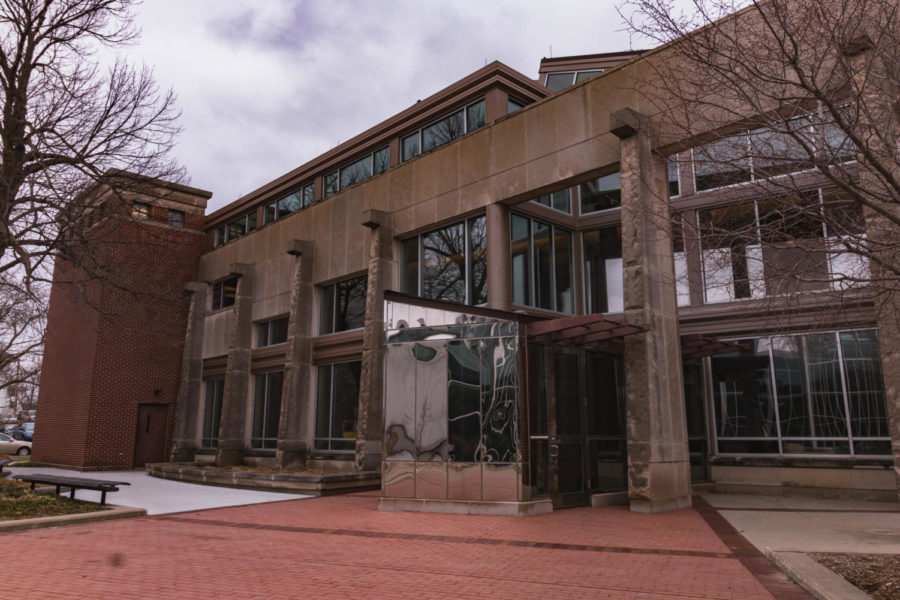Sexual Assault Response Team moves to Thielen Student Health Center
May 14, 2020
Thielen Student Health Center (TSHC) at lowa State is now providing their facilities for all Sexual Assault Response Team (SART) exams in Story County.
Since the beginning of April, TSHC became the only open facility in Story County to do SART exams to lessen the risk of COVID-19 exposure as well as ensure the survivor receives the access and dedicated time and care required, according to Jessica Shannon, TSHC Nursing and Patient Services supervisor and Sexual Assault Nurse Examiner (SANE).
“Sexual assault exams can take up to four hours and the team wanted to ensure a facility structure that provides optimal confidentiality and infection control,” according to a TSHC press release. “This process was also put in place to support the Story County emergency departments so they could focus on serving COVID-19 patients.”
According to the press release, the examiners have seen a small decline in the number of reported assaults, but those that have needed to be seen have appreciated not having to go to the local hospital or emergency department.
Shannon said SART is a team composed of three different groups: the police, the Assault Care Center Extending Shelter and Support (ACCESS) and the SANE nurses.
She said the team is activated anytime a sexual assault is reported, with the police dispatch operators pulling everyone together.
“Dispatch has been really great in this process,” Shannon said. “They are our go-to station that directs everybody where they need to go and they have been great with adjusting to these changes and making sure the patients are taken care of and that everybody gets to where they need to go.”
Shannon said after dispatch has reported the sexual assault, it is time for the SANE nurses to meet with the patient. Currently, all SART exams are being done at TSHC, but if a patient arrives at the hospital or emergency department first, the team on site will ensure they are medically safe to transport to TSHC where SART will be waiting for them.
Sexual Assault Nurse Examiners (SANE) are certified nurses or advanced nurse practitioners that have been specially trained in performing forensic exams as well as providing holistic patient-centered care for that patient during a traumatic time in their life. Story County has seven certified examiners.
“We will meet them at the hospital, we will meet them at the county hospital, at the clinic, wherever they are at we will meet them there and I will meet with them and explain what services I am able to help them with,” Shannon said. “I explain what the examining looks like and we let them have control and be in the driver’s seat because it is really about giving them back their control and giving them back their ability to make decisions.”
Shannon said it is important to “meet them where they are at” mentally by providing the patients with options. Patients can do 100 percent of the exam or if they only want to do parts they are able to. Shannon said the patients can even leave and come back later to do certain parts of the exam.
The sensitive process of conducting a sexual assault exam has not changed, with the exception of asking the patient to wear a mask, according to the press release. TSHC is equipped with the same equipment and resources as a hospital and the nurse examiners are still connecting the patient with community and campus resources to help the patient process the crime.
“By having this less crowded space, we can ensure additional confidentiality,” Shannon said. “By being examined, we’re giving them their voice back and helping them find closure. They are in control again and dictate what they want from the exam. They set the pace.”
After the patient has an exam with the SANE nurses, ACCESS is able to step in and provide additional resources. If a patient needs a safe place to stay or crisis counseling, ACCESS is able to provide that.
The final step patients have the option to take is filing a report with the police. Shannon said patients do not have to report if they do not feel comfortable doing so, or they have the option of reporting anonymously.
“This is important because we want to make sure that if someone has enough confidence and they want to tell their story or they want to seek help, that we are there to help them by empowering them and giving them their voice back,” Shannon said. “We just don’t want COVID-19 to be a barrier to them from seeking resources. It is really important that we are doing the best we can to serve those survivors, we don’t want COVID-19 to be a reason why people don’t report.”







